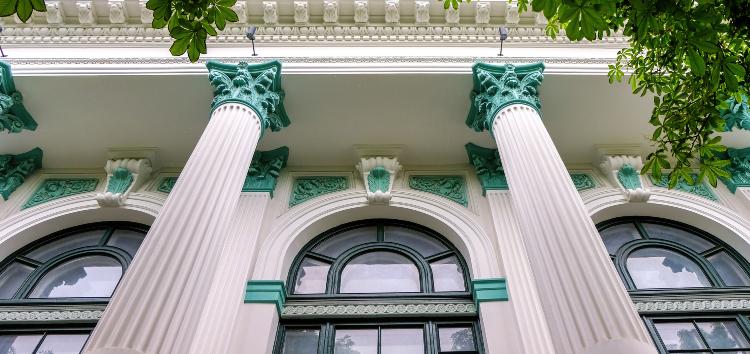- EBRD President makes second trip to Moldova in two years
- Visit follows a year of record EBRD investment in 2022, five times the average
- Aim is to strengthen EU candidate Moldova’s economy despite Russia’s war on Ukraine
Odile Renaud-Basso, President of the European Bank for Reconstruction and Development (EBRD), begins a visit to EU candidate Moldova on Monday. The trip follows a year of record EBRD investment in the country, supporting its efforts to buffer its economy against the shock of Russia’s war on neighbouring Ukraine.
President Renaud-Basso, accompanied by the EBRD’s Managing Director, Eastern Europe and the Caucasus, Matteo Patrone, will meet the Moldovan authorities, business leaders, representatives of international financial organisations and civil society. She is expected to sign a new loan with one of the Bank’s partner banks during her three-day trip, which also marks the handover between outgoing EBRD Head of Moldova Angela Sax and her replacement, Catarina Bjorlin Hansen.
Like other countries in the region, Moldova has been facing enormous short-term uncertainty because of the ongoing war on Ukraine, coming hard on the heels of the Covid global pandemic. The Bank’s investment and policy activities over the last 18 months have thus focused on helping the country to build resilience against the economic turbulence caused by the war.
By the end of 2022, the EBRD had increased its financing in Moldova to nearly €525 million, five times its average annual investment, or 4 per cent of the country’s GDP. Major investments included a €300 million loan for strategic gas purchases to help Moldova diversify its sources of supply and buy more from European hubs and a €100 million loan to upgrade roads near the Ukrainian border.
The revolving facility for buying gas allowed Moldova to meet around 20 per cent of demand last winter with supplies from the European Union - up from less than five per cent in 2021. Moldova’s gas imports have traditionally come from the Russian company Gazprom, with which it has a contract, but are vulnerable to potential interruption as a result of the war on Ukraine.
The EBRD’s latest five-year Country Strategy for Moldova for 2023-28 focusses on investing in Moldova’s energy security, support for the private sector and decarbonisation, along with upgrading the country’s infrastructure, seen as crucial in the current climate of supply-chain and trade disruption.
In 2023, EBRD infrastructure investments have continued at a high level. The Bank has invested US$ 30 million in an agreement with electricity distributor Premier Energy to finance investments into the power distribution network; signed an €23 million agreement to finance the rehabilitation of key rail infrastructure as part of the Solidarity Lanes initiative; and lent €25 million for Moldova’s first nationwide solid waste management improvement project. Under its flagship EBRD Green Cities programme, the Bank has also provided €8 million to limit flooding of Chisinau’s River Bic, and transform it into an attractive asset for its residents.
The EBRD’s latest Regional Economic Prospects said in May 2023 that Moldova would suffer a second consecutive year of output decline in 2023, caused by the impact of the war in the neighbourhood. But improved global prospects in 2024 will have a positive impact on the economic recovery, predicting a 3.5 per cent rise in GDP.
The EBRD is a leading institutional investor in Moldova and, to date, has invested more than €2 billion in the country through 166 projects. It has provided advisory services to more than 1,000 Moldovan firms to help them improve performance and grow. And it is working closely with the Moldovan authorities on creating a regulatory environment that will encourage more investment in renewable energy, among other areas of policy dialogue.
Its focus in Moldova is on creating an environment that supports private sector activity, promoting European standards across sectors and regional integration to bring domestic producers closer to their markets, as well as developing efficient and sustainable public utilities which have a direct impact on people’s lives.




